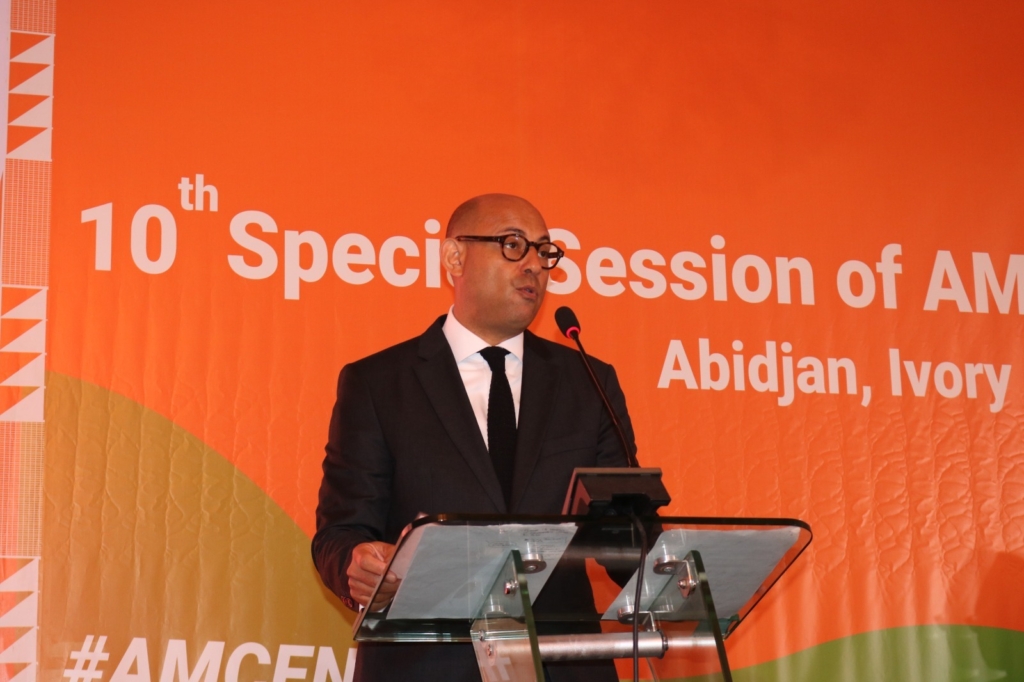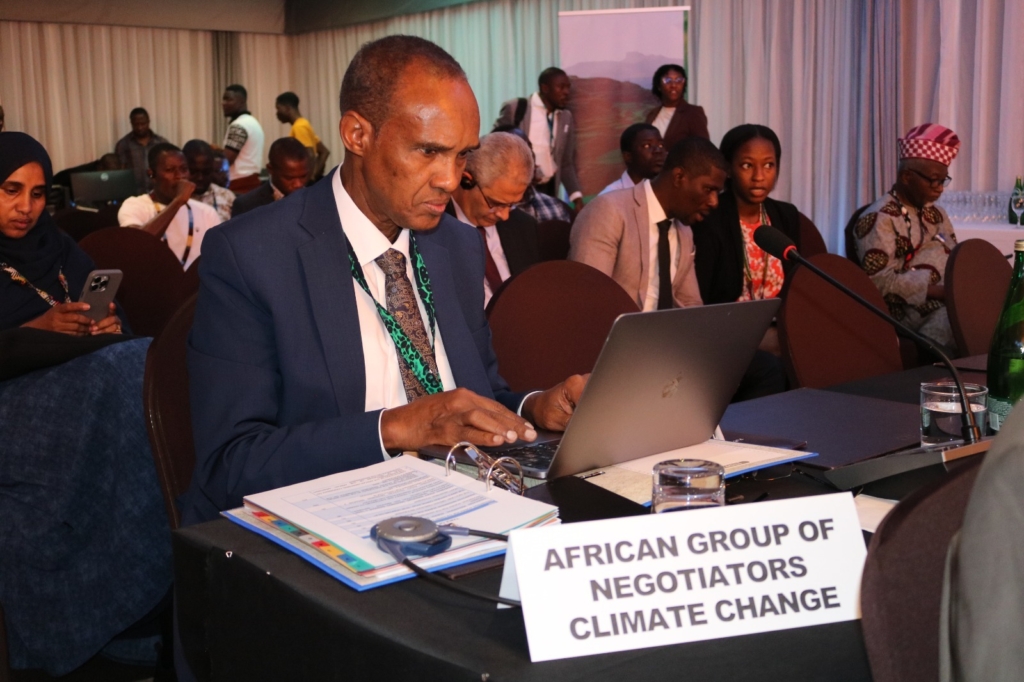The African Ministerial Conference on the Environment (AMCEN) has adopted the African common position, highlighting the continent’s key priorities for the upcoming 29th session of the Conference of Parties (COP29) of the United Nations Framework Convention on Climate Change (UNFCCC).
The 10th special session of AMCEN, an annual gathering to discuss and strengthen environmental governance, was held in Abidjan, Cote d’Ivoire, under the theme: “Raising Africa’s Ambition to Reduce Land Degradation, Desertification, and Drought.”
A key agenda of AMCEN over the years is the African common position on climate change negotiations—a declaration containing key priorities and messages in the various themes of the climate negotiation process.

The need to unlock climate finance has, for years, dominated the discussions for Africa, and it was equally the case at this year’s session, at which the importance of climate finance was highlighted and reiterated.
It was reported that despite African countries submitting ambitious nationally determined contributions (NDCs) to the UNFCCC, there has not been corresponding support for their implementation. To achieve their NDCs, African countries need an estimated US$2.8 trillion between 2020 and 2030.
“The continent has been warming at a faster rate than the global average. From Algeria to Zambia, climate-driven disasters are getting worse, inflicting the most suffering on those who did least to cause them. In Africa, as in all regions, the climate crisis is an economic sinkhole, sucking the momentum out of economic growth. In fact, many African nations are losing up to 5% of GDP as a result of climate impacts,” observed Simon Stiell, UNFCCC Executive Secretary.
Ahead of COP29, the African Group of Negotiators on Climate Change (AGN) is prioritising the need for ambitious climate finance outcomes, said AGN Chair, Ali Mohamed, in his presentation on Africa’s priorities.

“We are particularly focusing on an ambitious New Quantified Goal on Climate Finance (NCQG) outcome that is based on evolving needs as reflected in developing countries’ NDCs, National Adaptation Plans, and other national climate planning and programming instruments.
“Our position includes; a quantum of $1.3trillion per annum by 2030; quality of finance that is informed by criteria including debt sustainability, cost of borrowing, and significantly from public sources, thus emphasizing grant and highly concessional finance; and transparent mechanisms in respect of accountability,” he said.
The adopted AMCEN climate change decision further highlights the importance of adaptation to Africa, in the context of its well-known vulnerabilities to climate change, particularly in climate sensitive sectors such as agriculture and water, with cascading effects into the health sector.
“As highlighted in the 2023 State of Climate Report in Africa, the continent remains on the front lines of fighting climate change and its impacts; from rising temperatures to shifting rainfall patterns, and other extreme weather events,” noted the AGN Chair.
“As a consequence, key sectors such as agriculture, water and health are in dire straits. Crumbling agricultural productivity and production due to either droughts or floods, water scarcity and rising temperatures are not only causing food insecurity but also leading to serious health challenges for the people.
"Both health and climate experts keep highlighting nutrition-related challenges, heat stress, occurrence and increase of certain infectious diseases such as malaria and waterborne illnesses, among others. A deeper understanding on this nexus is a must for effective adaptation”.
Other key priorities for Africa contained in the adopted common position include; the call for the operationalisation of the Loss and Damage Fund to support African countries in coping with the irreversible impacts of climate change and aid in the recovery of affected communities; equitable just transition in the context of Africa’s unique needs and development circumstances; the need to launch work on Africa’s special needs and special circumstances recognising Africa’s vulnerability; and finalisation of rules for carbon markets that are robust and deliver environmental integrity and the long-term goals of the Paris Agreement.
Latest Stories
-
Lady sues Police and AG over assault in custody
59 mins -
Ghana’s railway sector has been revived under my leadership – Akufo-Addo
1 hour -
Next government must enforce C190 – Women Economic Dialogue Forum
1 hour -
NCCE engages party youth activists at Nandom on peaceful election
1 hour -
SSNIT engages stakeholders on its operations
1 hour -
Defilement: 19-year-old farmer jailed ten years, with hard labour
1 hour -
Bawumia to inaugurate new headquarters of Lands Commission on November 25
2 hours -
Sylvester Tetteh denies demolishing GBC staff bungalow
2 hours -
Signing of peace pact by presidential candidates slated for November 28
2 hours -
Akufo-Addo reiterates commitment to free and fair elections
2 hours -
Climate change impact poses threat to Ghana’s financial stability – BoG Governor
2 hours -
Ursula Owusu-Ekuful assures of leading NPP to victory in Ablekuma West
2 hours -
Akufo-Addo urges armed forces to maintain neutrality, professionalism
2 hours -
Driver jailed 15 years for robbery
2 hours -
Election 2024: Bawumia is a timely asset for NPP and Ghana – Freddie Blay
2 hours

